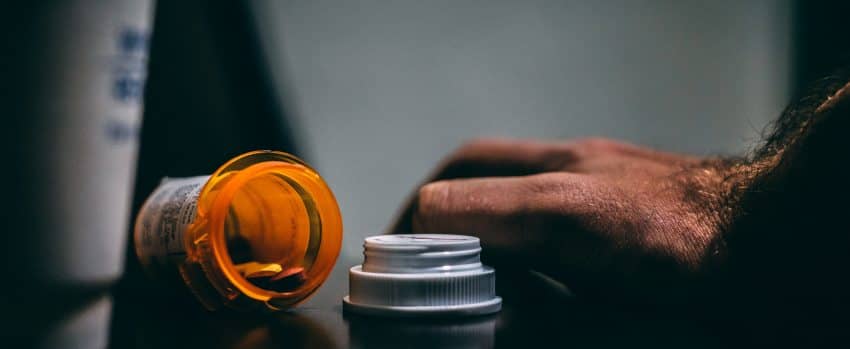Drug Possession Laws in Georgia 2024

Drug Possession Laws in Georgia 2024
Update July 9, 2024. Originally written for 2022, with updates for 2023.
Learn about laws and penalties for possession of controlled substance, illegal substances, and drug paraphernalia in Georgia.
Drug possession charges? Drug possession charges? Being arrested in Georgia for drug possession can result in State and sometimes Federal charges. If you are under investigation, or have been arrested, for charges related to marijuana, controlled substances, narcotics, or paraphernalia you should contact a drug charges defense lawyer.
Any Possession Charge Can Have Severe Consequences
It’s obvious that if you’ve been charged with trafficking or distribution you’re extremely likely to be headed to prison for quite a while. But what about charges that you think are no big deal? Depending on the circumstances of your arrest, and the attitude of the prosecutor’s office, things could get ramped-up and aggressively pursued in a trial.
2024 UPDATE: Hemp Related
On July 1, 2024, new laws will go into effect regarding Georgia’s "Hemp Laws". The first thing you should know is that Federal changes to marijuana laws will have no direct effect on Georgia laws. This means, as a resident in Georgia, most news about changes to federal laws will not have much of an effect on your life.
Consumable hemp products, such as items found at stores that sell THC and HHC edibles, are now required to be tested for their total Delta-9 THC level. The measured amount of THC must be 0.3% or lower.
The laws on possession of hemp products has also changed. Effective July 1, 2024, you must be at least 21 years of age to buy hemp products. Anyone under 21 years of age, and found to be in possession of a hemp products, may be charged with a misdemeanor offense. Being in possession of products above ththe .03% level could pose a problem, so think twice about bringing in out-of-state products.
Food products that contain hemp derivatives remain illegal; however, the new law includes a new definition of these "food products". As of July 1, items such as hemp gummies are not considered to be food products.
What is a Controlled Substance
What is a controlled substance? A controlled substance is any pharmaceutical or narcotic that is regulated by law. The Georgia laws on controlled substances can be found in Georgia Code Title 16. Crimes and Offenses § 16-13-1. The exact wording of the law can be found on the FindLaw website, and is as follows:1
- (a) As used in this Code section, the term:
- (1) “Controlled substance” shall have the same meaning as defined in Article 2 of this chapter, relating to controlled substances. For the purposes of this Code section, the term “controlled substance” shall include marijuana as defined by paragraph (16) of Code Section 16-13-21 .
- (2) “Dangerous drug” shall have the same meaning as defined in Article 3 of this chapter, relating to dangerous drugs.
- (3) “Drug related object” means any machine, instrument, tool, equipment, contrivance, or device which an average person would reasonably conclude is intended to be used for one or more of the following purposes:
- (A) To introduce into the human body any dangerous drug or controlled substance under circumstances in violation of the laws of this state;
- (B) To enhance the effect on the human body of any dangerous drug or controlled substance under circumstances in violation of the laws of this state;
- (C) To conceal any quantity of any dangerous drug or controlled substance under circumstances in violation of the laws of this state; or
- (D) To test the strength, effectiveness, or purity of any dangerous drug or controlled substance under circumstances in violation of the laws of this state.
- (4) “Knowingly” means having general knowledge that a machine, instrument, tool, item of equipment, contrivance, or device is a drug related object or having reasonable grounds to believe that any such object is or may, to an average person, appear to be a drug related object. If any such object has printed thereon or is accompanied by instructions explaining the purpose and use of such object and if following such instructions would cause a person to commit an act involving the use or possession of a dangerous drug or controlled substance in violation of the laws of this state, then such instructions shall constitute prima-facie evidence of knowledge that the object in question is a drug related object.
- (5) “Minor” means any unmarried person under the age of 18 years.
- (b) Except as otherwise provided by subsection (d) of this Code section, it shall be unlawful for any person knowingly to sell, deliver, distribute, display for sale, or provide to a minor or knowingly possess with intent to sell, deliver, distribute, display for sale, or provide to a minor any drug related object.
- (c) It shall be unlawful for any minor falsely to represent to any person that such minor is 18 years of age or older with the intent to purchase or otherwise obtain any drug related object.
- (d) No person shall be guilty of violating subsection (b) of this Code section if:
- (1) The person had reasonable cause to believe that the minor involved was 18 years of age or older because the minor exhibited to such person a driver’s license, birth certificate, or other official or apparently official document purporting to establish that the minor was 18 years of age or older;
- (2) The person made an honest mistake in believing that the minor was 18 years of age or over after making a reasonable bona fide attempt to ascertain the true age of the minor;
- (3) The person was the parent or guardian of the minor; or
- (4) The person was acting in his capacity as an employee or official of any governmental agency, governmental institution, public school or other public educational institution, any bona fide private school, educational institution, health care facility, or institution; or the person was acting in his capacity as a registered pharmacist or veterinarian or under the direction of a registered pharmacist or veterinarian to sell such object for a legitimate medical purpose.
- (e) Any person who violates subsection (b) of this Code section shall be guilty of a misdemeanor for the first offense. For the second or any subsequent offense, a person violating subsection (b) of this Code section shall be guilty of a felony and, upon conviction thereof, shall be punished by imprisonment for not less than one nor more than five years or by a fine of not less than $1,000.00 nor more than $5,000.00, or both. Any person violating subsection (c) of this Code section shall be guilty of a misdemeanor.
The Federal Drug Schedule
The federal government has established a Drug Schedule which classifies pharmaceuticals and narcotics known to be abused.
It is important to note that even if a substance is not specifically cited in the Drug Schedule, certain substances can be claimed to be covered under federal law. The United States Drug Enforcement Administration website states, “a substance need not be listed as a controlled substance to be treated as a Schedule I substance for criminal prosecution. A controlled substance analogue is a substance which is intended for human consumption and is structurally or pharmacologically substantially similar to or is represented as being similar to a Schedule I or Schedule II substance and is not an approved medication in the United States. (See 21 U.S.C. §802(32)(A) for the definition of a controlled substance analogue and 21 U.S.C. §813 for the schedule.)”2
The Federal Drug Schedule
What is a Schedule 1 Drug
Schedule I drugs, substances, or chemicals are defined as drugs with no currently accepted medical use and a high potential for abuse. Some examples of Schedule I drugs are: heroin, lysergic acid diethylamide (LSD), marijuana (cannabis), 3,4-methylenedioxymethamphetamine (ecstasy), methaqualone, and peyote.
What is a Schedule 2 Drug
Schedule II drugs, substances, or chemicals are defined as drugs with a high potential for abuse, with use potentially leading to severe psychological or physical dependence. These drugs are also considered dangerous. Some examples of Schedule II drugs are: combination products with less than 15 milligrams of hydrocodone per dosage unit (Vicodin), cocaine, methamphetamine, methadone, hydromorphone (Dilaudid), meperidine (Demerol), oxycodone (OxyContin), fentanyl, Dexedrine, Adderall, and Ritalin
What is a Schedule 3 Drug
Schedule III drugs, substances, or chemicals are defined as drugs with a moderate to low potential for physical and psychological dependence. Schedule III drugs abuse potential is less than Schedule I and Schedule II drugs but more than Schedule IV. Some examples of Schedule III drugs are: products containing less than 90 milligrams of codeine per dosage unit (Tylenol with codeine), ketamine, anabolic steroids, testosterone
What is a Schedule 4 Drug
Schedule IV drugs, substances, or chemicals are defined as drugs with a low potential for abuse and low risk of dependence. Some examples of Schedule IV drugs are: Xanax, Soma, Darvon, Darvocet, Valium, Ativan, Talwin, Ambien, Tramadol
What is a Schedule 5 Drug
Schedule V drugs, substances, or chemicals are defined as drugs with lower potential for abuse than Schedule IV and consist of preparations containing limited quantities of certain narcotics. Schedule V drugs are generally used for antidiarrheal, antitussive, and analgesic purposes. Some examples of Schedule V drugs are: cough preparations with less than 200 milligrams of codeine or per 100 milliliters (Robitussin AC), Lomotil, Motofen, Lyrica, Parepectolin
What Is Illegal Possession of a Controlled Substance?
An example of legal vs.illegal possession: Prescription drugs are a common example of a controlled substance. If, during a search, police find a controlled substance on you or in your car it is not a problem if the drug is in it’s labeled container which bears your name. If you have a controlled substance on you or in your car and it is not in its properly labeled pharmaceutical container you are in trouble. If the substance is in it’s proper container, but your name is not on the label, you need to have a valid reason to have it to avoid arrest and prosecution.
Illegal possession generally comes down to having physical possession or control of the substance (i.e., in side of your vehicle) without permission or legal reason to have it.
The Severity of Drug Possession Charges
Getting arrested for possession in Georgia will bring an aggressive prosecution with a real possibility of incarceration. Depending on the circumstances of the case, a sentence may result in a diversion program or up to 30 years in prison. Anyone arrested on drug charges could face both State and Federal charges.
Factors That Affect Your Sentencing
- What are the relevant State and/or Federal sentencing guidelines for charges filed against you?
- Are your charges misdemeanor charges or felony charges?
- Are criminal charges for a first, second, or further drug possession arrest?
- What are the recorded type(s) and quantity of illegal substances?
- What is the assumed intent (i.e., personal use, distribution/trafficking, etc.)?
Drug Possession Sentencing Guidelines
- Possession of any Schedule I or Narcotic Schedule II Drugs: warrant 2-15 years incarceration. Subsequent convictions warrant up to 30 years incarceration.
- Possession of non-Narcotic Schedule II Drugs: warrant 2-15 years incarceration. Subsequent convictions warrant 5-30 years incarceration.
- Possession of Schedule III, IV, or V Drugs: warrant 1-5 years incarceration. Subsequent convictions warrant 1-10 years incarceration.
Per the legal scholars at Emory University, as stated on their website, “Unlawful possession of any Schedule I Controlled Substance, Schedule II narcotic, or Schedule II non- narcotic is felony punishable by a term of incarceration of 2 to 30 years, depending on the quantity. Unlawful possession of Schedule III, IV or V controlled substance is a felony and punishable by a 1 to 5-year term of incarceration. Unlawful sale/distribution of any Schedule I or II Controlled Substance is a felony punishable by a term of incarceration of one to 30 years in prison, depending on quantity. Sale of any Schedule III, IV or V Controlled Substance is a felony punishable by one to ten years in prison, depending on quantity. 3
For more information on sentencing, you can visit the NORML website page on Georgia Laws and Penalties
Marijuana Possession in Georgia
In Georgia, under O.C.G.A. § 16-13-2(b), the possession of less than one ounce of marijuana is a misdemeanor offense. It’s worth noting that it it is a misdemeanor that can still bring a fine up to $1,000 and a year in jail. Possession of more than one ounce is a felony, punishable by a term of incarceration of between 1 and 10 years.
Possession of marijuana as part of selling, distribution or trafficking will bring felony charges. Possession of marijuana with intent to distribute, or sale, delivery or distribution, depending on the quantity of marijuana, is a felony punishable by a term of incarceration of between one and 30 years, and fines between $100,000 and $1,000,000. O.C.G.A. § 16-13-30(j) and 16-13-31(c).
While possession of commercially avalaible CBD products are legal, possession of edibles is a crime. The term edibles, relative to legality, This specifically includes, but is not limited to, anything you can eat that contains THC (food, gummies, etc.)
How to Beat a Possession Charge in Georgia
The results in a criminal case depend on the circumstances and specifics of the case. Aside from that, it comes down to the will of the prosecutor vs. the skill of your criminal defense lawyer. If you have been arrested, time is not on your side. You need to hire a criminal defense attorney as soon as possible and be totally honest with them. With adequate time to intervene and prepare, and a good command of the facts, they can mitigate the severity of consequnces.
What Are Potential Outcomes
After conversations with the accused, an attorney can contact the prosecutor’s office to discuss the case. An attorney wants to gauge the strength of the prosecutions case, the attitude of the prosecutor, and learn what evidence they have to support their case.
A criminal defense attorney first wants to attempt getting all charges dropped. There are a number of ways that this may be possible such as proving an illegal traffic stop or other flaws in police work.
If you are a first-time offender, your chances for leniency are reasonably good meaning diversion sentencing or probation may be possible. If you have a prior arrest, that is a factor that will complicate your defense.
If the prosecutor has an air-tight case with indisputable evidence, your attorney will work to get you the lightest possible sentence.
If you are under investigation, or have been arrested, for drug crimes you should contact a lawyer as soon as possible. Call an experienced drug crimes lawyer at 770-956-1400.
FOOTNOTES
- 1 FindLaw Staff, “Georgia Code Title 16. Crimes and Offenses § 16-13-1”, April 14, 2021, Available from FindLaw
- 2 DEA Staff, “Drug Scheduling”, April 20, 2021, Available from DEA Website
- 3 Emory Staff, “Penalties for Violation of Georgia Controlled Substance and Dangerous Drug Laws”, October 3, 2019, Available from Emory University
- Photo by Kevin Bidwell on Pexels



Lawyers should get together and fight for marijuana to be legalized for personal use. Until then, at least we have good lawyers to fight charges.
A friend got busted for a tiny amount of weed. She didn’t take it seriously, thought about not hiring a lawyer. She found out she was probably going to jail for awhile. She hired a lawyer at the last minute and got the First Offender thing. Anybody with a drug charge in Georgia needs to take it seriously and hire a good lawyer.
Weed should be legal.
Is it possible to beat a charge when the cops have some evidence like finding a tiny bit of weed on the floor in my car?
Why is having a little bit of weed such a big deal? I was stunned to learn that if I didn’t hire a lawyer the cops were going to prosecute me bigtime.
Thank you for the clear and detailed explanation of Georgia’s drug possession laws. It’s very helpful for staying informed about legal changes.